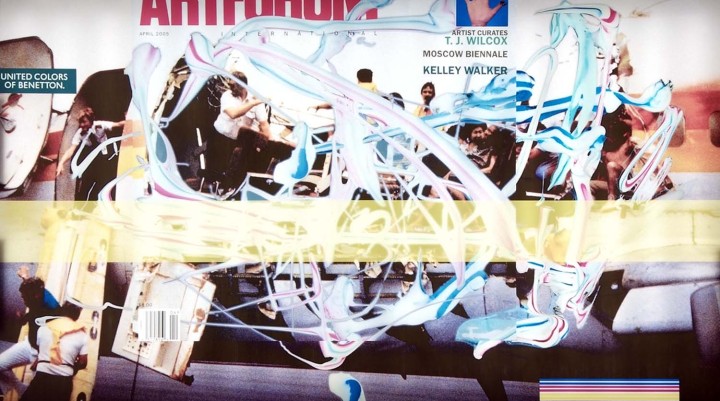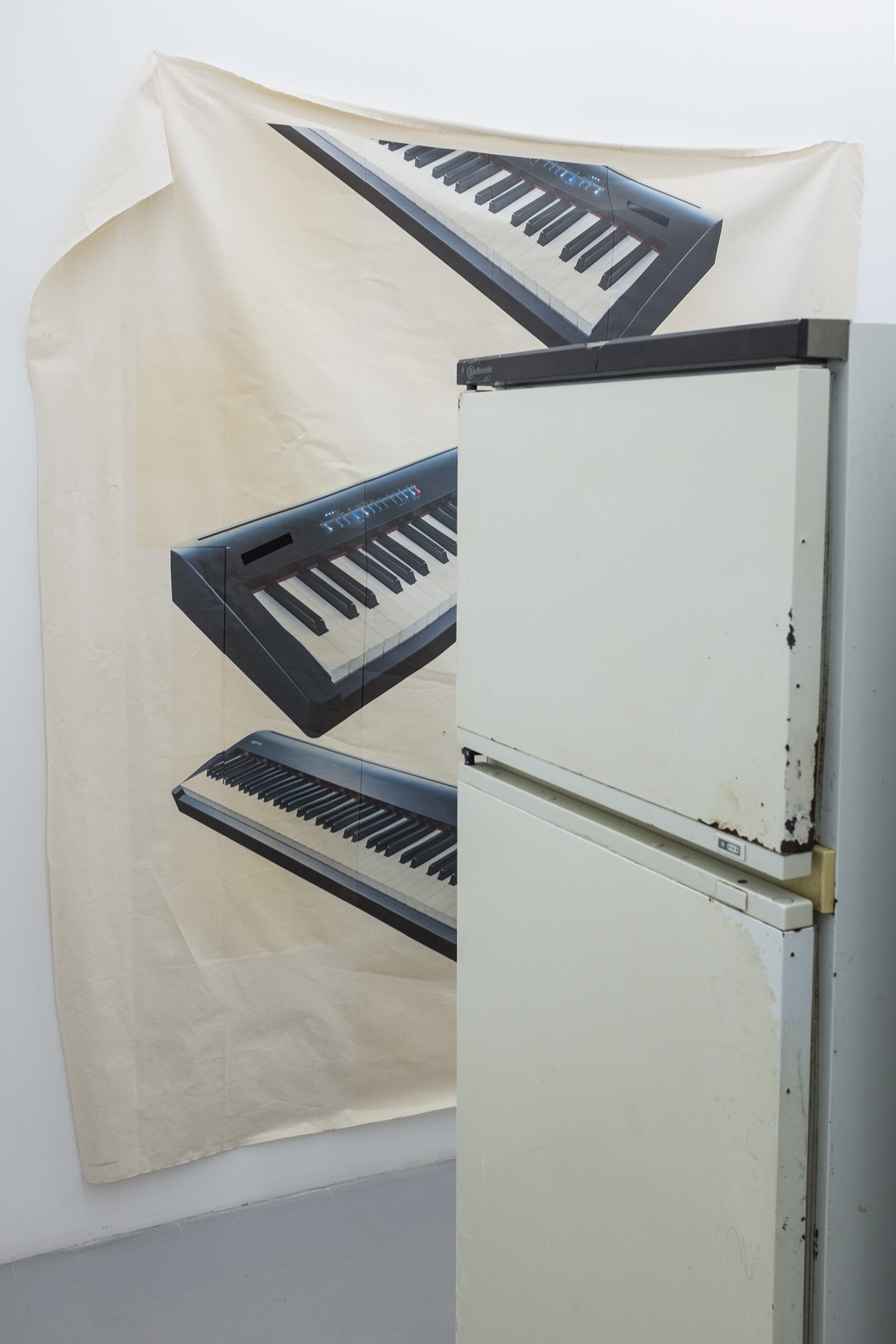The outrage felt by St. Louis’s black community over white artist Kelley Walker’s use of images of African American bodies in “Direct Drive,” the artist’s first monographic survey, comes as no surprise to those of us who have witnessed the efforts of the Black Lives Matter movement to increase awareness of police violence against black people, following the fatal shooting of Mike Brown in St. Louis’s North County just two years ago. Curator Jeffrey Uslip should have expected the reaction generated by the show.
The largest gallery in the exhibition is devoted exclusively to work from two previously criticized series: Black Star Press (2007) and Schema (2006). These consist of large prints of digitally scanned, chocolate- and toothpaste-smeared photographs depicting, respectively, civil-rights protesters being brutalized by the police and KING magazine covers featuring hyper-sexualized black female celebrities.
Uslip trains his focus on Walker’s appropriative techniques and digitization, on his layering of different reproductive processes to critique a postmodern audience. By this highly formal logic, Walker empties his chosen subjects of meaning in order to distance the viewer, not as a means of emphasizing the remoteness of the images from their original context, but to call attention to the disembodying potential of digital imagery and its will to cultural commodification.
Yet the disembodiment in “Direct Drive” is self-evidently political and not simply formal or digital, and it exposes the privileged disengagement of a moneyed art world that has long failed to adequately censure Walker’s consistent appropriation of images from black history and culture. Apologies from the artist, the curator and the museum do not suffice to redress the problem exposed here, which goes beyond a purely aesthetic dispute. It embodies the continuation of the historic, white, institutional subjugation of African Americans.


